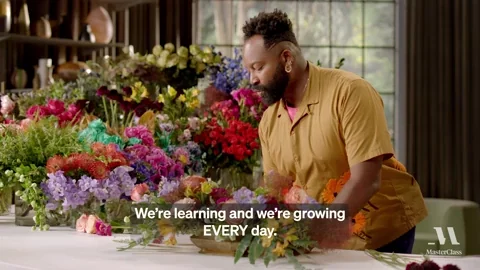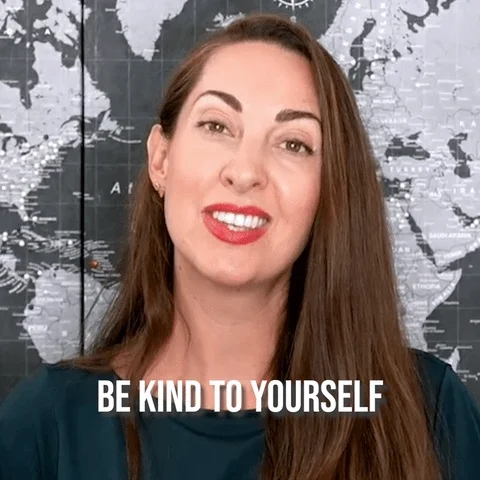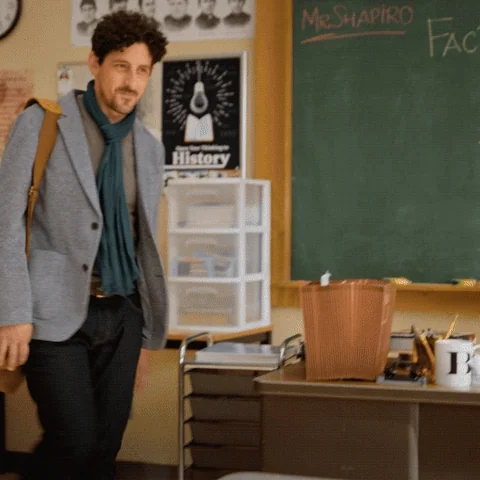You got your dream job of becoming a science teacher! You are ready to start the school year, excited to kickstart your career and teach your students the wonders of science. A part of your brain, however, might be like this:

There's a lot to juggle as a first-year science teacher. What can you prepare to make your first year of teaching science a success? Make your first year the year for growth using these four tips.
#1: Set a goal for the school year

Set yourself up for success by establishing a goal for the school year. This will improve your teaching practice by focusing on one area of improvement. With a goal, you will know what to work toward and avoid burnout by taking things one step at a time. By the end of the school year, you will have more confidence and stronger skills!

What can your goal look like? It can...
Align with your practice: new teaching/classroom management strategies, trying new labs (ex. "I will help my students apply their learning to the real world by hosting at least three lab experiences.")
Maintain a work-life balance: practice self-care (ex. "I'll stop grading after 5 PM to avoid burnout.")
Inspire students: improve students' academic performance, foster curiosity about how the world works (ex. "I'll share the wonders of science by showing students a fun scientific fact every week.")
For more great examples, check out this list of ideas developed by the University of San Diego!
#2: Build connections
You collaborate with teachers and students daily, so building connections is important to establish trust, create a positive learning environment, and set a tone for success.
Reach out to your colleagues (by grade level, with other science teachers, or cross-disciplinary). If you and another teacher notice a student is struggling in your classes, you can collaborate to create a support system.

Your relationships with your students are just as important! When students feel they can trust you, they're more likely to respond to your instruction positively and reach out for support. This will encourage excitement in your science class!
What can you do to build connections?
With colleagues:
Offer support and open communication
Share teaching resources
Meet up with them for lunch during and outside school hours
With students:
Get to know each student, such as their interests and hobbies
Volunteer and get involved in school activities
Make science relatable to everyday experiences and pop culture
#3: Be flexible

The first year of teaching will be the most challenging year, so be flexible. Things won't always go as planned, and that's okay! You're learning, and adjustments in instruction and content are needed to improve. Anticipating hiccups can help you better prepare for the school year.

What does flexibility look like?
Meeting your students where they are
Changing what resources you use
Adjusting the content for struggling students and those who are learning the language of instruction
Reflecting upon your practice to see where you can improve
How can you prepare?
Slow down the pace when students appear to be stuck
Have a list of resources for a lesson, including videos, labs, and demonstrations
Translate the material if possible to the first languages of students learning the language of instruction
Modify the content for struggling students, such as adjusting the academic language to fit their reading level
Quiz
You're doing a lab with your students. Within the first five minutes, you notice that the majority of the class looks confused as to what they should do. What should your next step(s) be?
#4: Don't overwork

You must care for yourself as much as you care for your students! Remember that teaching is a journey, and you have to be at your best to do your best. Set clear boundaries between work and personal life to avoid burnout!

What can you do to avoid overworking and burning out?
Limit the amount of work you do/take home
Go home by a certain time (ex. 4:00 PM)
Practice self-care (ex. meditation, therapy)
Maintain good health (ex., eat well, and exercise regularly)
Spend time with loved ones
Take Action
You're more than ready to tackle the school year, even if it doesn't feel like it. These steps will help you start the year off more prepared and confident, which will make your first year a success.
Success looks different for everyone, so don't worry about being perfect. Enjoy the journey! Your experiences will make the next year a lot easier.

Get out there and inspire your students with the world of science! Prepare for the most successful year of teaching:
Your feedback matters to us.
This Byte helped me better understand the topic.
